Andrew Burford, stuntman
Andrew Burford was born in Santiago in Chile, and for the next few years his family moved to Manchester and Argentina before settling back in the UK in 1996. He attended a contemporary music academy in Coventry and went on to tour internationally as a drummer. He also ran the entertainment agency Ents-Rep.
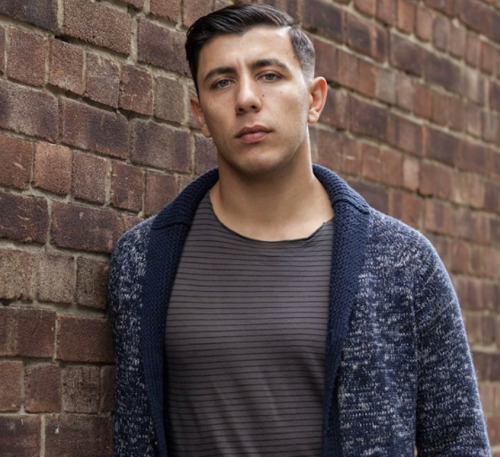
Andrew has been on the British Stunt Register since 2015, and has appeared in many prestigious films and TV programmes, including Star Wars, Game of Thrones, Doctor Who and Luther. His GoFundMe campaign for fellow stuntman Joe Watts – who was injured performing a complex stunt – has raised almost £47,000. Andrew appears as the stunt double for actor Ioan Gruffudd in the second season of Liar, which airs on ITV on Monday, 2 March 2020, at 9pm. He chats to Liz Arratoon.
The Widow Stanton: What is your connection to Chile?
Andrew Burford: My granddad used to fly bombers during World War II and afterwards he got a job with British Airways in Chile, where my dad was born. My father is British and my mother is Chilean. Being brought up in a Latin household I was always listening to salsa and drumming music. When I was ten we had a neighbour who played drums and gave me a little lesson. He said I had good rhythm and I had more lessons and kept going. After music college I joined a covers band.
Why did you want to be a stuntman?
When I lived in Coventry, where I grew up, I had some friends called Matt Cooke and Vince Lund, who have been film and TV directors ever since I’ve known them. They work as Popcorn and Co and are very successful. Between the ages of 14 and 18, we used to go to a summer school… every Saturday in the summer we’d go to this… I guess it was like a summer holiday camp, and every week we’d have to bring a new skill. So people would sing, people would juggle, people would write a poem.
We’d do a short film every week for something like eight weeks over the summer and present it like a five-minute short. I was the sportiest one out of everyone so I actually did all the silly things like falling down stairs, jumping out of a car or climbing trees. I didn’t know it was called ‘stunts’, it was just something we did. At the same time I was doing drums. So I’ve always done that sort of stuff and since that time I’ve wanted to be a stuntman. But I wanted to be a policeman as well when I was lot younger, and I was a special constable in the Met Police for a bit. I did that for four years pre the 2012 Olympics.
How do you actually become a stuntman?
In essence you don’t have to do anything… if you are highly skilled, say you are an ex-Olympian and they’re looking for someone very specific to do a role, or let’s say you’re a rally driver and they’ve got a scene where there’s a big car chase and they need people who can drive to a very, very, very high standard, they may use people with specific skillsets for those sequences. But if you want to be an all-round stuntman the best way is to join the British Stunt Register and to do that you have to do six disciplines to a very high standard…
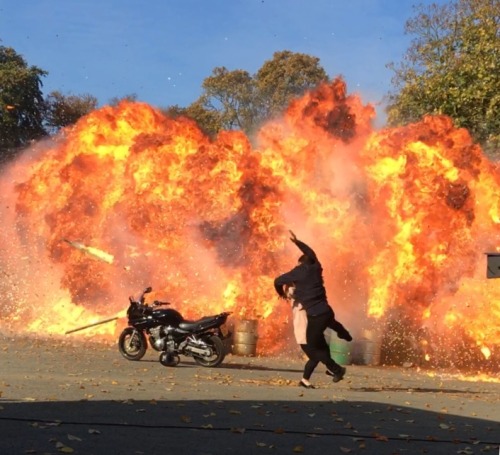
Can you choose them?
They’re in categories of, for example, falling, so that would be like high-diving and trampolining, then there are vehicles… motorbikes, cars… and horse riding… martial arts…and you have to have six disciplines within the five categories. There are maybe 20 disciplines in total you can choose from. That alongside having live theatre experience or working in background on a film set as an extra. When I did my training, you had to have done that and I did extra work just so I could get on to the stunt register. You had to have 60 days behind camera as an extra. Every time you go on set, you get a piece of paper like a contract from production to prove it.
Which did you do?
I did judo, cos you have to have a martial art, scuba diving, rock climbing, high diving, swimming and trampolining.
How long did it take you?
It took me about three years. Basically I was training full time, doing two or three sessions a day, so I’d do martial arts, then I’d go swimming… there was always something I’d be doing every day. For example, swimming took six months of going every day.
Was there a discipline you found more difficult than the others?
Swimming was probably the hardest because, for example, if you go trampolining you go twice a week and if you miss a week, you don’t fall back that much, but with swimming it’s very much a fitness and endurance test so you have to be at peak physical fitness throughout the whole period. So if you went a week without swimming…
For the swimming, you had to do an underwater test where you have to swim 25 metres under water, holding your breath, rest ten seconds and do it again. You have to do all the strokes within like, a county-level time. You couldn’t just be good at freestyle, you had to do all of them. Then you had to do more under-water tests, finishing with swimming fully clothed… shoes, socks, shirt, jacket, trousers… 100m in two minutes. It doesn’t sound that hard to do 100m fully clothed in 2 minutes, but after 45 minutes of other challenges, it’s super hard!
I remember you missing the test by a tiny margin…
Yes, I did the test once and I failed it mainly because of the 100m freestyle. You have to do it in a minute and 30 seconds, and that was the first part of the test. I remember the instructor after my second 50m length was going: “Hurry up, hurry up,” so I really went for it and then I got to the end after the four lengths and said, ‘Did I make it?’ She was like: “You did it in a minute and 10.” And I was like what do you mean, 1.10, I want to do it in a minute and 29, not with 20 seconds to spare’, because obviously by then I’d exhausted myself and it had a ripple effect to all the other swims after that.
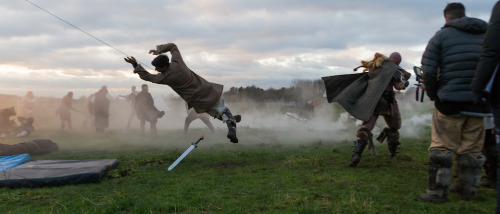
Were there any disciplines that came more easily?
I’ve always loved martial arts although it takes longer, because you have to be a brown belt or above. It’s just more fun, so I enjoyed doing that. I also learnt trampolining and gravitated to that pretty well and I love it.
Tell us about some of the stunts you’ve be asked to do…
My first time on Game of Thrones – it was all filmed in Ireland, season 8, the last season – I’d never worked for that team before. I was flown over to do some pick-up shots; basically they had an episode that was something like 50 to 60 days of nights, and I came on to the tail end of that. I think they’d exhausted all the faces by then so they needed a few new ones. If it had been any other show it would have been quite an easy job, which was just to get slashed round the throat or something like that.
It was my first day on that set, first time meeting the stunt coordinator, Rowley Irlam – he’s won quite a few Emmys for the stunt work he’s created – so it was quite a big deal for me. So there’s like, 200 extras there, 60 stunt guys, a whole crew of probably 100 and it was literally a small vignette of just me and another stunt guy slashing my throat and me reacting to it. Jobs like that are your bread-and-butter easy work, but because it was Game of Thrones and it was the first thing I’d done on it and it was just me with everyone basically watching me, it was the most nerve-wracking thing I’d done to date, even though it was technically an easy stunt. But I did it and it went fine.
Then once you prove yourself a little you get trusted to do more intricate things and towards the end of that season I did a full fire burn. I was burnt by one of the ‘dragons’, which was quite a big deal for me. There’s a scene where the dragon flies through King’s Landing and there are two turrets at the gate. I was on one of them, where we had a big bow and arrow-type thing, and the dragon burns the whole turret. They put a small explosion beneath your leg and the flame ignites your whole body. Obviously you’ve got fuel accelerants on your costume and you’re just in a full blaze. That was quite cool!
Could you feel it?
No. When you do a full burn, it’s very dangerous, obviously, to burn yourself alive [laughs], but if anyone was gonna do it, this team were the best team to do it, because they’ve burnt more people on that show that anyone has on a TV series ever. There’s a science of how to do it, how to be safe and you obviously rehearse it over and over before you’re actually set alight, and then…
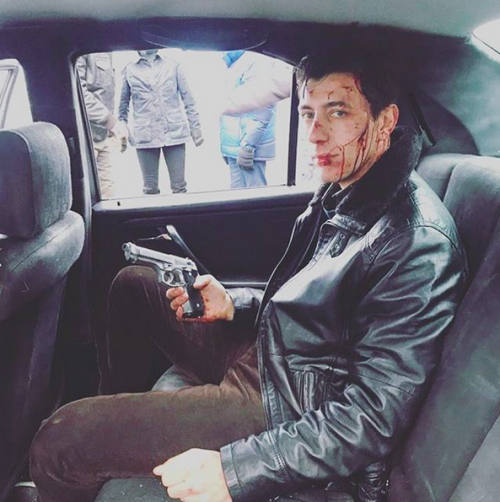
Is there a safe word or something if anything goes wrong?
There’s not but basically if you lie on the ground like a letter T that indicates to your safety team that you need to be put out. That’s kind of your safe word. You have a latex mask on and that stops your face burning, but while you’re waiting you can’t really breathe apart from through a little hole in the latex where you can insert a small tube, so you can take little sips of air. The mask is pretty much glued to your face.
How long were you on fire?
For maybe like, 20 seconds…
That’s a long time if you think of someone running the 100 metres.
The thing is even when you’ve been put out, you’re not supposed to take any breaths because the fumes can still be really hot and burn your lungs, so you have to be fully out and when your safety team tells you you can breathe, that’s when you breathe. You haven’t only been holding your breath, you’re moving and also expending a lot of energy. In this case before we were on fire and holding our breath, we had to hold the bow and arrow above our heads, which was heavy, a good 80kg in weight between two people.
At the same time you’re trying to regulate your breathing prior to taking your last breath before the fire ignites you and having to think about your action. So it wasn’t just about the burn itself, there were so many different aspects to think about during it, all of which affect your ability to hold your breath. That’s when you put your complete trust in your safety team to put you out as quickly as possible once they shout ‘cut’.
You told me once about being blown up and having to land in the road without any padding to land on. I couldn’t understand that…
That’s pretty much 90 per cent of our job, falling over on to concrete repeatedly… all the time.
How do you learn to do that?
That’s where your training in trampolining and gymnastics or judo comes in. If costume allows it, you can put pads in strategic places to soften the blow but sometimes it’s inevitable and you are going to hurt yourself in some way, for example if you get hit by a car… it’s always going to hurt, but there are ways of falling so you minimise the risk of causing serious damage. But you’re always hitting the concrete, especially after a car knock-down, so there’s always going to be some element of pain involved.
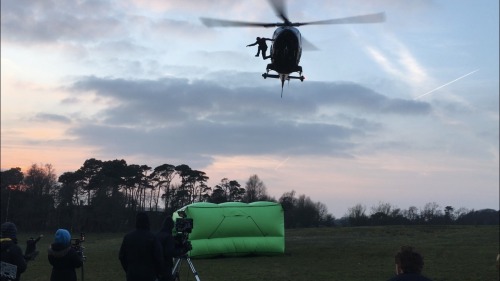
Any other stunts you’d like to mention?
Jumping out of a helicopter was a good one for a TV show called Discovery of Witches. It was from 50 feet in the air into an airbag. 50 feet in the stunt world isn’t really that high, I mean there’s people who have done 125ft falls into an airbag, and higher back in the day, but the difficulty with the helicopter is that it’s never static. So it’s always moving ever so slightly and you’ve still got to land on an area that is static, so that’s the element of danger in that stunt.
Talking about jumps from high places, have you seen the 1969 film Butch Cassidy and the Sundance Kid?
Yes, when they jump it’s incredible. Back in the day they used to do crazy heights. There is one guy who’s done a 200ft fall on fire going out of a building, and that’s pretty incredible.
How are you chosen for stunt work?
You might be a stunt double; if you’re doubling an actor, you might have the same characteristics or height and build. [Andrew pictured with Ioan Gruffudd below] Then you might have your bread-and-butter work where a lot of films might have armies… for example like 1917, you would have to have been a certain age and look for that period. Or things like Star Wars, you literally have to fit the costume that’s already been made, like a stormtrooper outfit, the height for that is 5’10 to 6’1.
You don’t have agents or anything like that, basically the film and TV companies will have a coordinator, someone who designs the action, and then it’s their job and their team’s to choose who might be right for each role and come up with concepts for what happens. For example, in a script you might see actor A and actor B have a fight in a pub, so they might need two doubles to double the actors, or pub punters, and they start building a team of people they might need for certain sequences.
A stunt coordinator is involved in all aspects of action for all sequences in the film and a fight coordinator would normally come up with all the different fights and styles of fights the actors and doubles might perform. They are also typically in charge of shooting a pre-vis, which is a pre-visualisation to show the director how they see the action taking place. If you go back to the pub scenario, the director might not know how he wants the fight to be, so it’s down to the stunt team to come up with ideas, which eventually become part of the film.
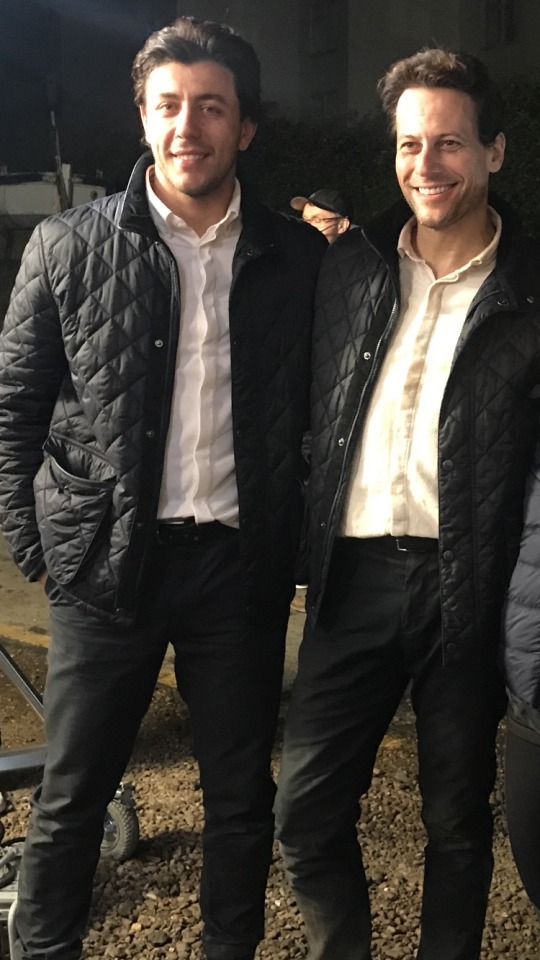
Do you have a typical sort of stunt day?
Typically, especially when you’re in costume, you’re probably in for 7am and then it’s a 12-hour day, and then any overtime that might go on. 7 ’til 7 is quite common. There can be a lot of sitting around waiting for something to happen, more on films than TV. If you’re lucky, there might be a stunt area where you can rehearse your scene or just relax. For TV, you’re typically going in to do a specific stunt, so you’ll go in and do it and then go, but on a film there might be a lot more stuff going on, so you might have to wait a couple of hours or sometimes days until your spot.
What is your training regime now?
I go to the gym most days, at least five days a week; weights, crossfit, martial arts. Obviously when you’re working it’s quite physical so it can be like training. I try to keep it as broad as I can because you never stop learning.
Have you ever been hurt?
Yes, there’s always injuries. You’ll never find a stuntman who hasn’t had some sort of injury, but to what degree is the thing. Your bread and butter for a guy in particular in our job is like, fights or reactions. A lot of reactions might be someone shooting you, so you’re always falling on the ground, or you’re fighting with someone so you’re going to take some bumps and bruises. Hopefully none that are on purpose but sometimes things do go wrong on set where people get injured long-term or indefinitely, and those who do work quite a lot they’ll always have some sort of injury going on because it’s inevitable with the amount of work you do and the amount of falling over.
Has stunt work lived up to your hopes?
Definitely! It’s fun. I’ve been lucky that I’ve been pretty busy since I started but I really miss not being at work if I have periods off. People ask about actors we come across, and although we work alongside them all the time, we generally don’t have that much interaction with them unless they talk to us because they’re very focused on what they’re doing. You don’t want to be that person who’s trying to interrupt, just like when I’m doing my stunt I don’t want anyone to interrupt me.
Is there a stunt that’s like the holy grail of stunts that you’d like to do?
I’d like to do some more car stuff like crashing a few cars or a massive car turnover. That would be a really good one to do. Ultimately you have to have complete control of a car, so you have to be entrusted with doing the easier things first, like stopping on a mark or precision driving and from there, progressing to harder things like car chases and crashes. I’ve done a fair bit of the ‘easier’ stuff, I’m just waiting for the opportunity to get involved in the harder stuff. It takes time to build up a good rapport with coordinators as being someone who can be trusted behind the wheel.
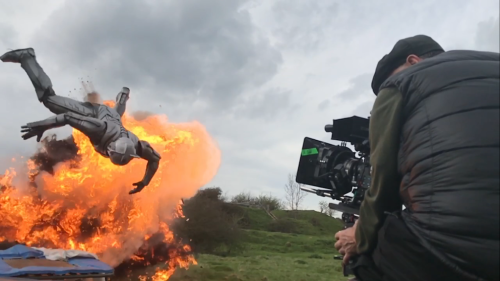
Do you see yourself as a stunt coordinator in the future?
I’m still very new and the industry is changing quite rapidly with new technologies that are being used, so I’d need a lot more experience working in teams on big films – typically 20 or 30 years – before I get to the point where I might be able to become a stunt coordinator but, definitely, I’d like to do that at some point in the future.
At the same time if you’re a good stuntman it doesn’t necessarily make you a good coordinator. They’re two sort of completely different jobs. Coordinators have to be able to read a script, break it down and get across what action can be done to bring the pages to life. A lot of people don’t understand how much goes into it; you’re not only looking after actors’ safety, but everyone’s safety on set. If you’re having a big car chase, you’ve still got 100 crew members around to consider who aren’t a part of the action. Coordinators have to be aware of that but also the designing of the stunts for all sequences in a safe manner. It’s a lot of pressure and not for everyone.
Are stunt men and women recognised for their work?
This is a bit of a hot topic, like, the Oscars don’t recognise stunts as a category for an award. If you take Brad Pitt, who just won Best Supporting Actor – he was playing a stuntman in the film Once Upon a Time in Hollywood – but at the same time you can’t get an Oscar for being an actual stuntman. They have awards for best sound design, best costume, best casting, which are all valuable and integral parts of film making, but no more valuable than the stunt department.
As a stunt community, we don’t necessarily want stunt performers to be acknowledged individually but as a department we should be recognised just like all other departments. If you look at all the major film trailers, they all typically show big stunts as part of their two-minute sequence. It’s a key selling point for the film to draw the viewers in to see the film in cinemas or to buy the DVD. Yet they currently don’t acknowledge our department, which is why people are trying to get the Academy to recognise it as a category. They’ve been debating it for 25 years with no luck.
But there are the Taurus World Stunt Awards, which are awards given by your peers. So stunt people will nominate stunts, like Best High Fall, Best Wire Work or Best Car Work. That’s like your peers acknowledging that you’ve done a good job, which is great, but it should be more widely recognised. We just want the recognition we deserve from the major players. Gone are the days where stunt guys are just a few knuckleheads on set for a couple of scenes. The stunt department pushes boundaries of what’s possible within a film and without it it’s fair to say many films wouldn’t have achieved the awards and accolades they have.
Andrew appears as Ioan Gruffudd’s stunt double in the second season of Liar, which airs on ITV on Monday, 2 March 2020 at 9pm.
Andrew on Instagram
Follow @TheWidowStanton on Twitter